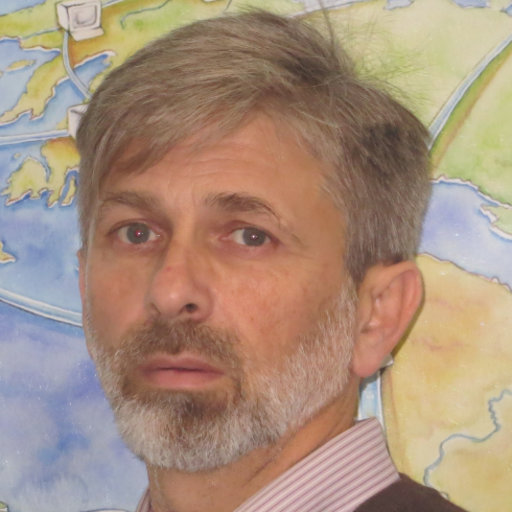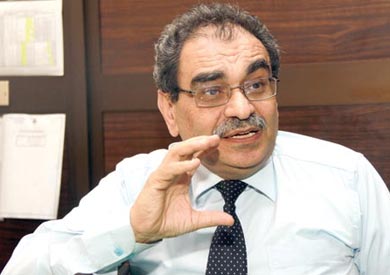At the time climate change is shaking up our society and complex challenges arise with managing scarce natural resources, FEMISE (the Euro-Mediterranean Forum of Institutes of Economic Sciences) and six other partners- the Royal Scientific Society in Jordan, the Tunisian Environmental Protection Agency, the Greek Centre for Renewable Energy Sources and Energy Savings, the Egyptian Centre for Innovation and Technological Development, University of Catania in Italy and the Autonomous University of Barcelona in Spain- have launched the WEF-CAP project.
This project has grasped an opportunity to efficiently capitalize Water-Energy-Food (WEF) Nexus best practices, commercialization tools and methodologies to promote cooperation and tech-transfer, mainstreaming policy impact for innovation-driven progress to effectively support education, research, technological advancement, and innovation in the EU-MPC region.
Meanwhile, sharing knowledge and innovative approaches have become even more urgent in the present economic crisis, when the basic economic resources are no longer confined to the availability of natural resources, or the amount of labor but rather the systematic modeling of knowledge and experts’ know-how for the purpose of growth and innovation.
To better streamline this knowledge, the project created a digital repository called WEF-CAP Observatory platform which is considered a regional leading informative site, that enable experts, researchers and policy-makers to share, diffuse and transfer knowledge of the WEF Nexus capitalization and generate technical insights on best methodologies, practices of water, energy and food integration. This open source hub includes a network of stakeholders to promote the use of existing data, case studies and good practices to support decision-making and the formulation of evidence-based policies
Within this context, FEMISE conducted a series of interviews with key players from the region, including practitioners, policy makers, private sector and academia to promote the WEF integrated approach under the framework of the WEF-CAP project with the financial support of the European Union through the ENI CBC MED Programme, with the aim to share knowledge, experiences and best practices across the region, highlight challenges and recommendations.
Capitalizing on WEF initiatives that work in Greece & Egypt!
In this third episode, we present two innovative initiatives that have proven their worth and success, Eric Mino, Executive Manager, Technical Unit at SEMIDE working in the water and energy sector, and Mohamed Salah El Sobki, Technical expert at the Federation of Egyptian European Business Associations (CEEBA), Egypt working on energy and water management.


Eric Mino Mohamed El Sobki
Hydrousa project beyond water waste practices to water in circular economy and resilience
Hydrousa project brings together 28 partners from ten countries to implement large-scale nature-based solutions in 3 Mediterranean islands (Lesvos, Mykonos, and Tinos), that play a vital role in promoting a more sustainable and harmonious relationship between human activities and the natural water cycle.
Hydrousa, aims to revolutionize the water supply chain in Mediterranean regions by demonstrating innovative solutions for water/wastewater treatment and management, which will close the water loops and will also boost their agricultural and energy profile.
MAIA TAQA, Innovative project mobilizing new areas of investments to increase quality of life for all
The MAIA TAQA project aims to define a new group of sustainable services related to energy, water and waste by promoting innovative resource efficiency services in Mediterranean SMEs through the enhancement of their technical and management capacities. By establishing real demonstration cases with local companies in 3 Mediterranean pilot areas (Lebanon, Jordan and Egypt), MAIA-TAQA is keen to raise awareness among SMEs and policy makers on innovation practices and policy instruments in RE services.
A network of SMEs will lead the way in tackling regulatory frameworks and trade barriers by creating an enabling environment for the development of the renewable energy sector in southern Mediterranean countries.
Watch the video where we go beyond sharing relevant experiences. We promote effective WEF Nexus implementation practices that could be adequate for replications in the Mediterranean region to ensure access to water, energy and food for all.
WEF-CAP PROJECT
https://enicbcmed.eu/projects/wef-cap
Twitter: @WefCap
Facebook: Wef-Cap Project
Copyright notice: Copyright © WEF-CAP.
WEF-CAP (THE TECHNOLOGY TRANSFER AND CAPITALIZATION OF WATER ENERGY FOOD NEXUS) is a project part of the ENI CBC MED Programme supported by the European Union through the Grant Agreement nº C_A.2.1_0069 running from 1st of September 2021 to 31th of August 2023.
This document is provided by the copyright holders and contributors « as is » and any express or implied warranties, including, but not limited to, the implied warranties of merchantability and fitness for a particular purpose are disclaimed. In no event shall the copyright owner or contributors be liable for any direct, indirect, incidental, special, exemplary, or consequential damages (including, but not limited to, procurement of substitute goods or services; loss of use, data, or profits; or business interruption) however caused and on any theory of liability, whether in contract, strict liability, or tort (including negligence or otherwise) arising in any way out of the use of this document, even if advised of the possibility of such damage. The ENI CBC MED Programme is not liable for any use that may be made of the information contained therein.


